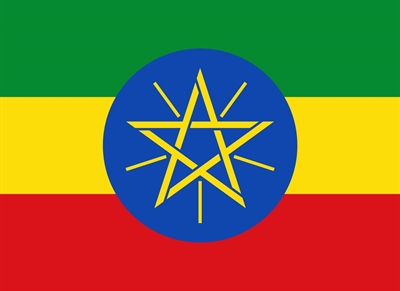Ethiopia - African Commission on Human and Peoples' Rights - Ethnic Discrimination - September 2014
Country: Ethiopia
Type: Intl Mechanism Submission
Issues: Children's Rights, Detention, Diaspora Engagement, Education, International Advocacy, Minority Rights, Torture, Women's Rights, Workers' Rights
Mechanism: African Commission on Human and Peoples’ Rights
The Advocates for Human Rights and the International Oromo Youth Association submitted a parallel report to the African Commission on Human and Peoples' Rights for its 56th session for Commission's examination of Ethiopia's fifth and sixth periodic country report on the implementation of the African Charter on Human and Peoples' Rights. The parallel report addresses ethnic discrimination and other human rights concerns.
The parallel report, divided into four sections, demonstrates that the Ethiopian Government has not fulfilled its obligations under the African Charter:
- General Measures
The Ethiopian government uses the pretext of combatting terrorism to target government critics; judges face intimidation; laws restrict the activities of civil society organizations as well as their sources of funding; government control of the media and intimidation of journalists constrain access to information and restrict independent journalism; and government surveillance impedes efforts to engage in human rights monitoring.
- Civil and Political Rights
The Oromo people and other ethnic groups face discrimination, particularly based on actual or perceived political opinion; the Ethiopian government in its response to peaceful protests does not respect the right to life or the right to freedom of association and assembly; government critics face arbitrary arrest and detention and, when detained, are at risk of torture; and the Ethiopian government does not hold perpetrators of torture or excessive use of force accountable.
- Economic, Social, and Cultural Rights
Many people living in rural areas have been stripped of their right to own property and to earn a livelihood through the government's "villagization" program; Oromos who do not openly support the ruling party face discrimination in exercising their right to work; there are striking health disparities in the State of Oromia; Ethiopia does not have enough primary schools to fulfill the right to free and universal primary education, and students are subject to political indoctrination to join the ruling party; children are exploited as domestic workers; children with disabilities are often denied their right to education; government policies and procedures fail to protect children from abuse within the family; perpetrators of violence against children enjoy impunity; and female genital mutilation (FGM) is widespread and the government has not undertaken sufficient prosecutions of perpetrators of FGM.
- Peoples' Rights
The Ethiopian government actively impedes the rights of disadvantaged ethnic groups, including the Oromo people, to equality and self-determination; forced relocations impair food and water security and threaten the culture and identity of rural peoples of Ethiopia; rural administrative councils controlled by the ruling party use access to food assistance and other state-distributed resources to coerce allegiance to the ruling party and to punish dissent; and agricultural policies focusing on commercial, water-intensive export-oriented agri-businesses interfere with the livelihood of rural farmers who live downstream.




